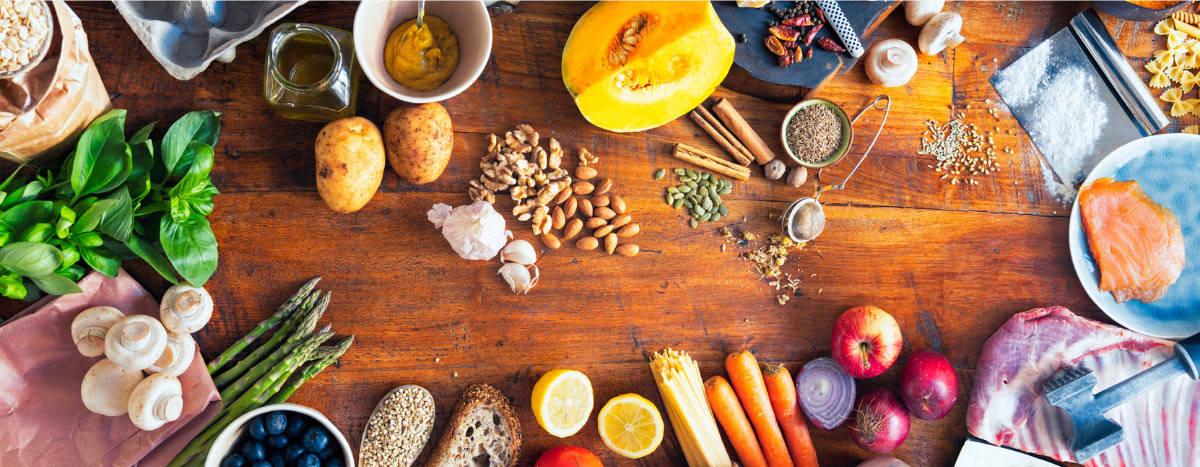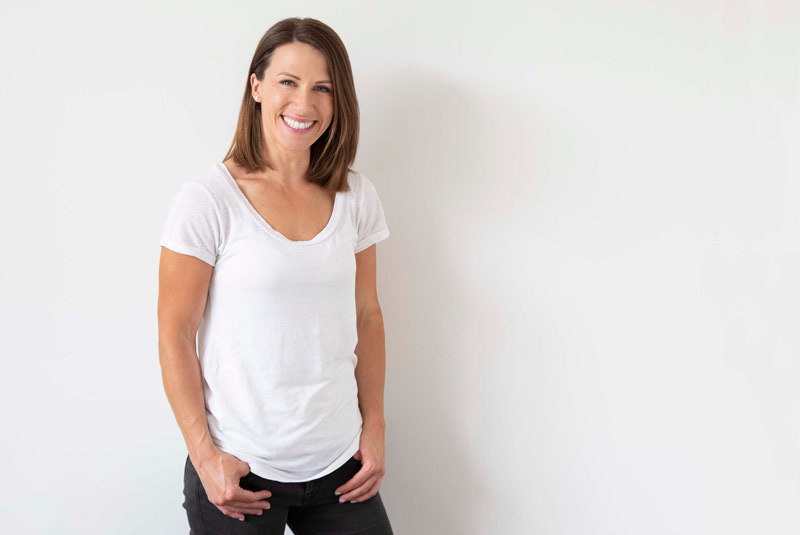Life Insurance
Lump sum payment if you were to pass away or are diagnosed with a terminal illness.
Can small rewards help you change your behaviour around food?
Claire Turnbull – 6 minute read
12 May 2021
Changing your diet isn’t just about what you eat, but about the way you eat. It’s about changing your habits and behaviours around food. NZ Registered Nutritionist Claire Turnbull from Mission Nutrition explains more.

I struggled with my eating when I was a teenager. I was on and off diets. I went from starving myself to binging, and going through cycles of really dysfunctional eating.
When I went to university, I thought, "I'm going to train to be a dietitian and a fitness instructor and I'm going to learn everything there is to know about changing the way that you eat, and then I'll get to the other end of it and all my problems with food will go away."
I did a four-year full-time degree, learnt everything I could, and yet my eating issues were still present. Probably worse. I’ve realized since, some 10 years later, that knowledge alone doesn’t change how you eat. To change the way you eat, you need to change your behaviors around food. And small steps can lead to amazing things.

So many of the decisions we make around food are subconscious; they're based on habits. The problem that so many people have is that they know what they need to eat, that vegetables are good, that drinking too much wine's not so good. Most of us have the fundamental basics of what we need to be doing to get into a better space but we don't do it. That's because knowledge alone doesn’t change behavior.
Now, my passion is trying to teach people to change their perspective around the way they eat; to rewire some habits to make it easier to make the right choices.
It’s a bit like driving a car. If you’ve driven on the left-hand side of the road for 30 years, you’ll go up to a roundabout and won't think about which indicator to put on. Your brain will take you round the roundabout without thinking about it. But if you move to another country and drive on the other side of the road, you need to consciously engage your brain to do something different.
It’s the same with food. You can’t change your eating habits by simply going on a six-week program, because you’re just relying on willpower to get to the end, rather than teaching your brain new habits and behaviours.
I start with getting people to consider why they eat what they do, rather than focusing on what they’re eating. Is it because you’re genuinely hungry and can stop when you’re full? Are you eating mindlessly, or because of the time of day, or because the food is right in front of you? Is it to manage your feelings and emotions?
From there, remove judgments. If you feel bad about yourself for not being able to manage what you eat or control the way you eat, it’ll continue driving the negative eating.
When you’re aware of this, you can start making changes. What can you do to reduce those reactive eating responses? You’re much more likely to eat and drink what’s right in front of you, so rearrange your fridge and pantry. Unless you’re planning on drinking tonight, put beer and wine downstairs, put the crackers on the top shelf so you need to get a chair to get them down. Keep a plate of chopped up vegetables at the front of the fridge, because they’ll be easier to access.
Then, start planning. Have you got a lunch meeting, do you need to take the kids to swimming, is there anything that might throw you off course? Start training yourself to see obstacles before they arise, so that you can consider that choice in advance. Think ‘I’ll have the veggie frittata at my lunch meeting’ so making the right food choice when you’re there becomes easier. These are just a few small changes you can do to help make healthier choices more accessible.
If you find yourself ordering takeaway three times a week, ask yourself why. Because you were tired, hungry, it was easy? Then consider how you could negate that. Bulk cook every second Sunday so you’ve got a bunch of nice meals in the freezer. Stick a list of five easy dinners on the fridge, so you can whip them up quickly instead of ordering in.
Healthy behaviours don’t give you that instant gratification that a burger or a wine might provide, so set up your own reward system. For every day that you pack lunch, put a dollar into your bank account and then treat yourself to something special when you’ve got $50.
Don’t try to change too many behaviours at one time. Focus on the biggest thing first. For example, stop having a beer when you get home from work. Look at what you’re eating on weekends. It’s taken you X amount of years to learn to eat a certain way, but quick fixes don’t work. Accept that you’re on an exciting journey learning about yourself and adopting some new behaviours.
If you change the way you look at things, the things you look at change. Changing the way you eat doesn’t need to be a battle; it can be really positive and empowering.

Mission Nutrition offers a range of health services to AIA Vitality members, from supporting people with endometriosis, diabetes and cancer management, to eating disorders, pregnancy, and weight loss. AIA Vitality members get 75% off an initial consultation and can earn up to 2500 Vitality points per year. Book your appointment here.
Article by: Claire Turnbull
Claire Turnbull is an author, registered nutritionist, TV personality, professional speaker and Director of Mission Nutrition. Claire has created a number of books, videos, articles, blogs and programmes to help New Zealanders eat well, take care of themselves and ‘make healthy happen in their lives’.
Disclaimer: The information in this article is general information only and is not intended as financial, medical, health, nutritional, tax or other advice. It does not take into account any individual’s personal situation or needs. You should consider obtaining professional advice from a financial adviser and/or tax specialist, or medical or health practitioner, in relation to your own circumstances and before acting on this information.